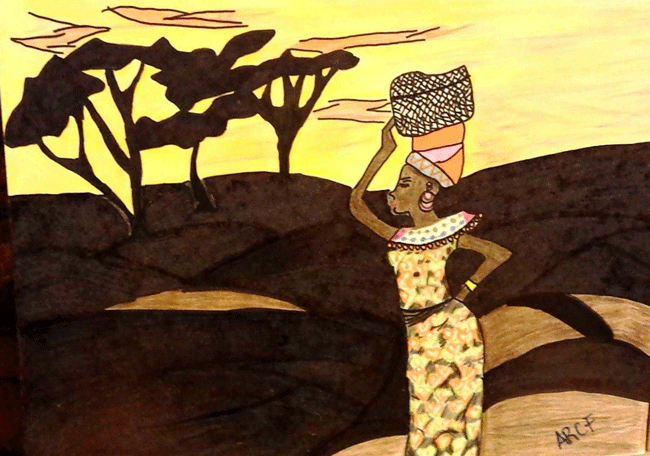Who would believe African History, taught by one of our finest GC profs, Jan Shelter, is a social and racial justice course? Personally, I certainly believe this class to be one of the best courses I have ever taken at GC.
We were able to learn about important historical events especially about the history of colonization and the slave trade from the slave side not the slaver. Lastly throughout the class we were able to educate ourselves about a history that has been misinterpreted, not studied enough or stereotyped. Some of the topics that we studied also included climate change and the importance of studying African history in order to understand previous and current environmental crises.While we think learning African history might not be relevant in the United States, I strongly believe this statement to be false. African history has a lot to say about racism in the United States, especially racism against the African American communities. Also it is relevant as the United States has created a great need for many African countries to be dependent on such a rich nation.
When we think about colonization, we think about the various Indigenous communities which were massacred, displaced and oppressed. We rarely think about similar cases in the African continent. When we think about concentration camps we rarely think about Kenya and the Mau Mau rebellion where the English took many Mau Mau supporters into concentration camps. When we think about climate change we don’t think about the way in which many farms and agricultural practices in African countries have been affected. Although, they contribute to the less environmental damage.
When we get coffee or other various natural resources and commodities we don’t think about where they came from. We don’t think that in order for us to get such “needs” many hands had to come together, many mouths had to starve, many children had to miss the chance to go to school and many lives have been taken away.
However, don’t get me wrong because the African continent is not a poor continent, neither is it a violent, dangerous, wild, underdeveloped continent. While violence and lack of development does exist, it is mostly a continent rich in resources, culture and, of course, history. And yes, Africa is a CONTINENT not a country. This I believe are the dangers of a single story that we must fight against.
This course gives us the opportunity as college students to know about such injustices and social issues that many people ignore. Knowing African history will also allow us to understand current social issues that are not only experienced within the African continent but also worldwide.
The chaotic governmental situations that are experienced in many African countries mostly due to the colonizers and their prejudices of racial, ethnic and power divide can be seen now more than ever in the United States, in Latin America and of course that includes my very own Mexico. The divisions of land that have caused many massacres and genocides in the African continent is also seen in the Israeli-Palestinian conflict and many others around the world. If by now it is not evident the way in which colonization has literally ruined this world, then when will it be evident?
The hand of the European man has written history for many years, the history of those whom they took their land, raped their women, took their children, their culture and destroyed their families. But yet those who were enslaved were the evil ones, those to be saved in the name of God.
And it is now that we wonder why is it that different ethnic groups are killing each other. We wonder why women are raped and killed in former matriarchal societies. We wonder why such governments are failing to provide basic needs to their people. We wonder why there is so much corruption and inequality. We wonder why there is so much poverty.
Next time we talk about Africa we should understand that we are talking about a whole continent not a country. We should understand the dangers of a single story, a story of the colonizer. The African continent is not poor or savage, the African continent is rich in culture, resources, people, innovation, technology, art, history and many more.


